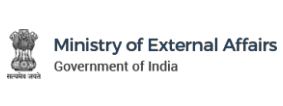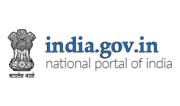Washington, DC
23 January 2012
Dr. Deepa Ollapally: Thank you Ambassdor Rao for giving us such a sweeping overview on India-US relations. Ambassador Rao has kindly agreed to stay for another 10 minutes or so to take some questions. What I would ask is-let me see a show of hands and I will call on you and maybe take all the questions at once so we don’t take too much time one on one. And when you ask a question please say who you are and where you are from.
Questioner 1: I’m Jonathan Roader (sp?) from CQ. As you probably know, on Capitol Hill, there’s increasing frustration with Pakistan and our alliance with Pakistan. There some lawmakers who are recommending that we cut our ties with Pakistan and they use the word “tilt” toward India… they would be looking for India playing the role of a status quo power in Afghanistan after US troops leave in 2014. I’d like to get your thoughts on that idea.
Questioner 2: I would like to ask your opinion and India’s position about the South China sea, the TPP especially the Indo-Chinese countries including Myanmar, Laos, Cambodia, Thailand and Vietnam. We do hope that our cultural, traditional ties dating thousand years would help and thank you very much for India to step up in the region. I hope to hear from you.
Questioner 3: Raghubir Goyal, India Globe: Ambassador, great overview of Inda-US relations. What role do you think India will or want to play in Afghanistan because, also there is a problem in the neighbor[ing] Pakistan who also do not want India to play a role in Afghanistan.
Questioner 4: Lalit Jha with PTI: can you give us a sense of talks you hare having with US on the issue of Iran. US is asking you to reduce India’s dependence on Iran oil but India says it can’t do that.
Questioner 5: My name is Andrea Revice. Thank you very much for speaking to us today. If you could please speak to the different partnerships or different progress or view you country has towards the conservation and preservation of different natural resources with a look at the long term sustainability.
Ambassador Rao: Those were all very interesting questions. Talking about the question you raised about the frustration with Pakistan on Capitol Hill. I get a sense of that. I do visit Capitol Hill quite frequently. I think what we’ve seen in recent years is a strengthening and deepening of the partnership between India and US and this has evolved quite naturally and as part of the whole process there is the deepening of the dialogue when it comes to the situation in our region particularly events in Afghanistan. I think the whole issue of terror sanctuaries and the operation of terror groups with trans-national operability has become very much a part of this discussion and dialogue. Today with the homeland security dialogue being initiated between India and the US and that process moving forward I think here is much greater clarity of perception from each side on what the nature of this threat is and how we need to work towards to its elimination.
You in Washington do realize, of course, that Pakistan is our immediate neighbor… it’s a neighbor with which we’ve had a difficult, a complicated and a very fractious relationship for over six decades now. We are engaged in a very conscious effort, a sincere, honest effort to try and see how we can reduce the trust deficit in our relationship with Pakistan in order to see how we can move towards a coherent process of normalization. Now, this is not going to be easy. There is a lot of difficult terrain ahead. We recognize that and we’re realists about it, but the fact is that for people on both sides there is need for trade and business ties to grow. There is need for travel between two countries to be facilitated in a smoother way. In the region of Jammu & Kashmir, we have consciously worked on putting in place confidence building measures that enable trade across the line of control, better transportation facilities so that people can connect more easily. But, fundamentally I think we have sought to stress and emphasize to Pakistan there is need for them to act on the issue of terror. It threatens to destroy the fabric of life in Pakistan itself today; I think they realize that very well. So India, I think, as the US sees it and I think it is the right way to perceive India, India has stood as an anchor of stability in this region and India basically wants to turn the geography of the subcontinent into a geography of hope. We want to be able to integrate, economically, allow the benefits of our development and the accelerated development that we’ve been seeing in India to benefit our neighbors also. And that has been the approach we’ve taken with Sri Lanka when we signed the first free trade agreement that we ever signed with any country more than a decade ago, our relations with Bangladesh, the very special relationship we have with Nepal and with Bhutan, and the opening to Pakistan.
But Afghanistan and what happens there is really of concern to us and that goes on to the question asked to me about Mr. Grossman’s visit as to what is the role we seek to play in Afghanistan. Well, our vision of Afghanistan is that it should become a stable, peaceful, very strongly democratic country. It’s a very diverse society, a very plural society very much like India’s. How do you cohere all the different ethnic groups and interests in Afghanistan together, that is the challenge. And now, with the dialogue that has been launched with the Taliban, we have to see where that goes. But, our vision for Afghanistan is that the progress that is being made in the last decade and a little more than that should not be turned back. The benefits that have accrued to women and children particularly should not be diminished in any way. Very few people perhaps recall this, but the modernization of Afghan society in the early 20th century came really out of the impetus that was provided by Indian Muslims, educated Indian Muslims, who had this vision of an independent region working together and you know the converse of that has happened now with the Taliban coming out of Pakistan trying to radicalize and make the place much more extreme. So, hopefully, we can all work together to ensure that the gains of Afghan progress are not set back in anyway and that whatever dispensation emerges in Afghanistan will promote peace and stability within the country, enable it to be a hub of trade and economic connectivity with the rest of the region because Afghanistan is designed to be that in many senses, a kind of pivot for South Asia.
On India’s position on the South China Sea, well you know the South China Sea is a very vital water way; much of global and regional maritime trade goes through the South China Sea. So, obviously we would like to see disputes in the area to be resolved peacefully. We’re not taking sides. It’s not that we are advocating one case against the other. It is obviously for the countries concerned, and I know that Vietnam and China are now engaged in discussions to see what they can do about the disputed islands. So this process, we hope, and also within the ASEAN context also, I know there are efforts being made to see how you can introduce some kind of a code of conduct and an approach that would build more convergence, reduce differences and as the Chinese say, build common ground.
But, obviously, the attention of the region is very much focused on this area and we would not like to see tensions build up, we would like whatever security architecture that is put in place to be inclusive. I don’t believe the answer lies in isolating China. We have to draw China into a consultative process, we have to be able to impress upon China the need for more transparency and more dialogue and better communication. I think that is the challenge before all of us and we have to work together to ensure that.
China is our largest neighbor. It is an enormously important relationship for India and we have sought very assiduously and very consciously to improve our relationship with China, even though there are outstanding issues particularly the boundary question between the two countries that needs to be resolved. But, we have made some progress on that regard. We are seeking again to reduce differences; we have maintained peace and tranquility on our border. We have mechanisms in place that enable us to contact each other- each side, the other- whenever there is any incipient tension. So I think that kind of management regime as it were for a relationship is extremely important. China is going through a period of political transition this year. This is an important year in many senses because we have elections in many many important countries. So the challenge before all of us ...we have to work together in a very mature and very far seeing manner to make sure that whatever we are able to achieve consolidates the progress of the last few years and does not take away from it.
And that goes for the trade and economic relations also. The ASEAN and India free trade agreement has been launched and now we are looking at a similar free trade agreement in services and with a number of countries in ASEAN, we have very very solid trade relations and you know, India is a country that borders South East Asia. If you look at Myanmar, India and Myanmar share a common border, and I often say – Mr. Mani Shankar Aiyar who is here has said too – that south east Asia begins in north east India. So in many senses, India is a multiregional country: it is not just South Asian, but it has an east ward perspective also, and that is very much a part of our “Look East” policy to South East Asia and to East Asia.
Talking of Iran and the question from Lalit, well, we are in touch with the US government and of course, closely monitoring the developing situation concerning Iran. Iran is an important source for our petroleum, crude petrol imports. These imports have declined a little, not very much, but a little over the last couple of years –last two years or so. We probably have to see, I mean, given the sanctions and given the difficulties in operating banking channels vis-a-vis Iran, obviously the volume cannot be expected to go up in such a situation. It may well be that, there may be a further decline. It may well be so. India is a responsible country. India works with the rest of the international community. We abide by the rules. Obviously we don’t play outside the system on these issues, but it must be remembered that the Gulf region is terribly important for India. We have six million Indians working there. Their remittances come home to their families; they are important for our economy. It’s a source of our energy imports. You know, India is basically an energy importing country. Look at the Mangalore refinery, for instance, it is geared just to work with the Iranian crude. So it is going to take time to sort of readjust and to see how we can move away from old patterns of how we operate on these issues. We are not for confrontation, we are not for military confrontation, we would not like to see the situation escalate to a point of no return and I think the avenues of diplomacy and statecraft have not been exhausted, and I think definitely Iran has to hear, you know, the voice of the international community clearly on this issue. Things should not come to a pass where, you know, it becomes very difficult to retract positions.
As far as Iran’s nuclear programme is concerned, we said very very clearly, we do not want Iran to weaponize; we don’t want Iran to go down that path at all. As an NPT member, it has certain rights to develop its nuclear energy for peaceful purposes, but it has to work with the International Atomic Energy Agency and the rest of the international community to assuage the concerns that have been raised so that, you know, we can then move forward, hopefully, to a situation where these tensions are eased.
And on the conservation and preservation of natural resources, obviously, a country of India’s size with a 1.2 billion population has energy shortages. India is looking very much to see how we can develop nonconventional energy resources, renewable energy, clean energy, which I mentioned in my speech earlier, is what we are talking about to partners like the United States, and also consciously through research and innovation within the country through the kind of mission-mode projects that we have launched under the direction of the Prime Minister to see how we can utilize these sources of energy . So you must understand, I don’t know if you have been to India? Well, you have to be to India to understand the complexity and the enormity of the challenges we face. This is not a textbook situation; you know when you can say this has to be done, you should conserve this and you should save on this, you should work like this on climate change. Please go to India and understand the plight of the common man, and his or her need for development. The fact that 500 million people in the country don’t have electricity, you know we have to build roads, we have to improve our airports, we have to modernize our railways, we have to generate much more electricity, we have to educate hundreds and millions of children, you know, who are coming into our schools, improve our higher university education -so it’s a whole different scene from what you maybe normally accustomed to. I invite you to first come to India and understand it.
Thank you.







